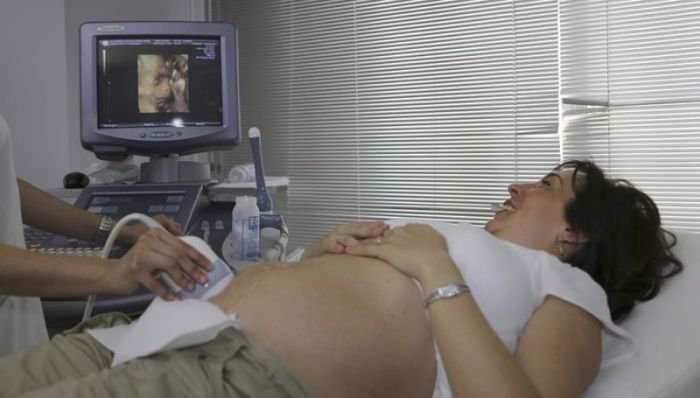Planned Parenthood agrees to install ultrasound equipment, drops case against Ind. abortion law

After years of legal battles, abortion giant Planned Parenthood has agreed to drop its lawsuit against an Indiana law that requires women seeking abortions to undergo an ultrasound 18 hours before an abortion.
A court filing on Aug. 19 states that Planned Parenthood of Indiana and Kentucky reached an agreement with the state and agreed to drop its three-year lawsuit against the 2016 law it claimed would hinder women's access to abortion.
The Planned Parenthood affiliate had been granted a court injunction in 2017 after it argued that the law requiring abortion clinics to perform an ultrasound on patients was unconstitutional.
Last week, however, Planned Parenthood of Indiana and Kentucky agreed to install ultrasound equipment in its Fort Wayne clinic and train staff on how to use it. Both parties in the litigation — the state of Indiana and Planned Parenthood — also asked the court to dismiss the case.
“Due to events that have occurred in the more than three years since this court entered the preliminary injunction — including, Plaintiff’s addition of a new ultrasound machine at a new clinic in Fort Wayne — the parties have conferred and agree that, on January 1, 2021, the preliminary injunction should be vacated and this case should be dismissed,” the court filing states in part.
Indiana Attorney General Curtis Hill reacted favorably to the news. “I’m pleased that Planned Parenthood saw the likelihood that this very reasonable law ultimately would be upheld,” he said. “To their credit, they recognized the merits of avoiding further legal wrangling over this matter.”
The legal battle Hill referred to began after then-Indiana Gov. Mike Pence signed House Bill 1337 into law four years ago. The bill includes several pro-life measures, including a requirement mandating that abortion providers perform an ultrasound at least 18 hours before an abortion is performed.
Almost immediately following its passage, the bill began to face legal challenges from pro-abortion groups, including Planned Parenthood and the American Civil Liberties Union. A federal judge struck down the law less than 24 hours before it was set to take effect.
A decision by the Seventh Circuit Court of Appeals upheld the lower court’s ruling blocking the law. Eventually, the battle over House Bill 1337 reached the United States Supreme Court.
Last month, the high court threw out the Seventh Circuit’s ruling, ordering the lower court to reconsider the case in light of its decision in June Medical Services, L.L.C. v. Russo. While that Supreme Court's decision invalidated a Louisiana law requiring abortion doctors to have admitting privileges at local hospitals, Chief Justice John Roberts indicated in his concurring opinion that states still had wiggle room to enact abortion restrictions in some cases.
In the past, members of the judicial branch have upheld state laws mandating that women be shown ultrasounds before an abortion. Last December, the Supreme Court refused to hear an appeal from pro-abortion groups seeking to strike down a Kentucky law requiring mothers to view an ultrasound and listen to their child’s heartbeat before they confirmed they wanted to have an abortion.
The Supreme Court’s decision not to hear the case enabled the Sixth Circuit Court of Appeals’ ruling upholding the Kentucky law to remain in place. Two weeks ago, the Eighth Circuit Court of Appeals gave the state of Arkansas the green light to implement laws banning dismemberment abortions and sex-selective abortions.
Last October, a federal judge upheld a Virginia law requiring ultrasounds and waiting periods for women seeking abortions. That law was overruled by the Reproductive Health Protection Act, signed into law by Gov. Ralph Northam this past April.
However, not every judicial ruling on abortion that has taken place in the past year has resulted in a favorable outcome for the pro-life movement. In addition to the Supreme Court’s ruling on the Louisiana law, a federal judge in Iowa blocked a law requiring a 24-hour waiting period for abortions from going into effect there.




























